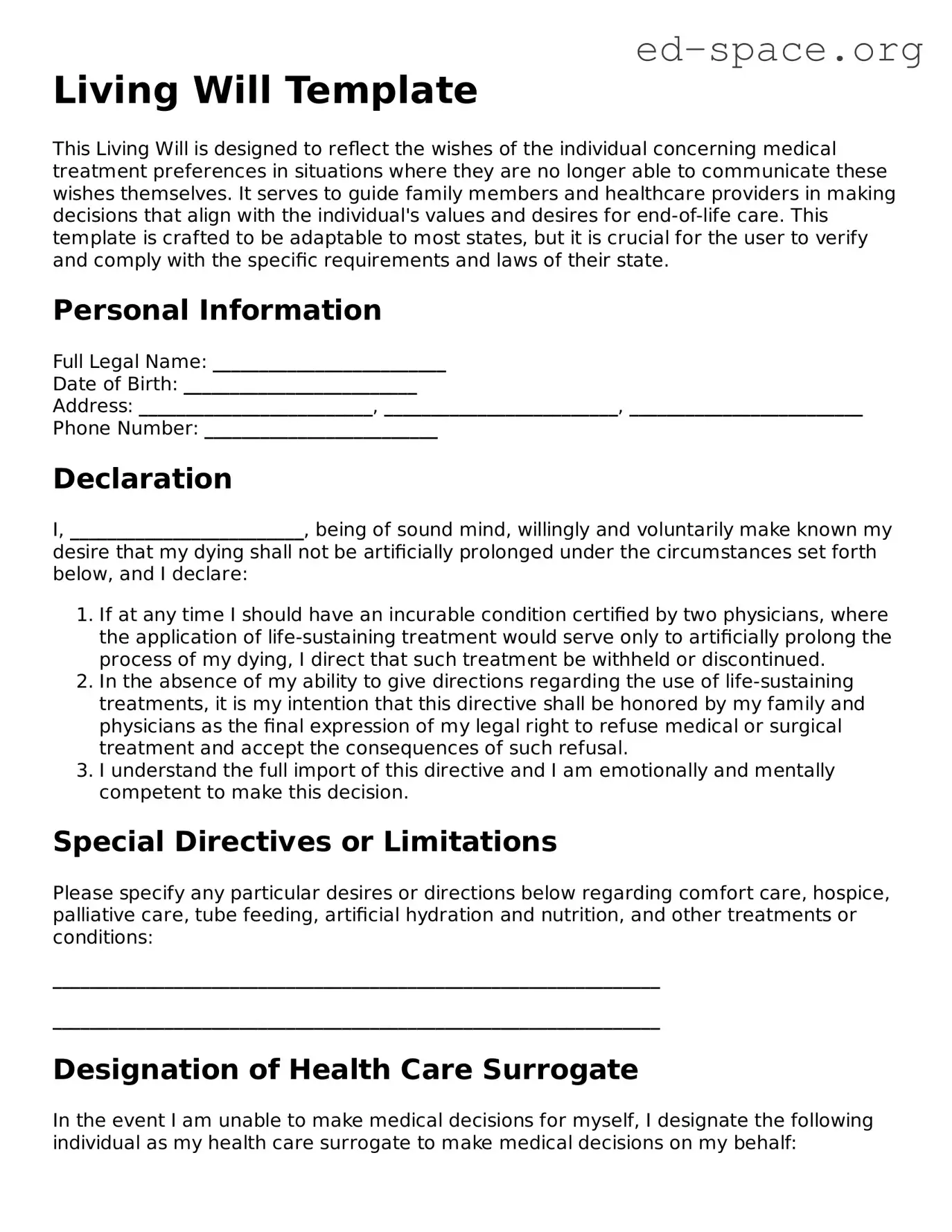Living Will Template
This Living Will is designed to reflect the wishes of the individual concerning medical treatment preferences in
situations where they are no longer able to communicate these wishes themselves. It serves to guide family members
and healthcare providers in making decisions that align with the individual's values and desires for end-of-life
care. This template is crafted to be adaptable to most states, but it is crucial for the user to verify and comply with the specific requirements and laws of their state.
Personal Information
Full Legal Name: _________________________
Date of Birth: _________________________
Address: _________________________, _________________________, _________________________
Phone Number: _________________________
Declaration
I, _________________________, being of sound mind, willingly and voluntarily make known my desire that my dying
shall not be artificially prolonged under the circumstances set forth below, and I declare:
- If at any time I should have an incurable condition certified by two physicians, where the application
of life-sustaining treatment would serve only to artificially prolong the process of my dying, I direct
that such treatment be withheld or discontinued.
- In the absence of my ability to give directions regarding the use of life-sustaining treatments, it
is my intention that this directive shall be honored by my family and physicians as the final expression
of my legal right to refuse medical or surgical treatment and accept the consequences of such refusal.
- I understand the full import of this directive and I am emotionally and mentally competent to make this
decision.
Special Directives or Limitations
Please specify any particular desires or directions below regarding comfort care, hospice, palliative care,
tube feeding, artificial hydration and nutrition, and other treatments or conditions:
_________________________________________________________________
_________________________________________________________________
Designation of Health Care Surrogate
In the event I am unable to make medical decisions for myself, I designate the following individual as my health care
surrogate to make medical decisions on my behalf:
Name: _________________________
Relationship: _________________________
Phone Number: _________________________
Alternate Surrogate (if primary is unable/unwilling to serve):
Name: _________________________
Relationship: _________________________
Phone Number: _________________________
Signatures
This declaration reflects my firm and settled commitment to refuse medical treatment that only serves to artificially
prolong the process of dying, should I be in a terminal condition or in a state of permanent unconsciousness.
I have discussed my wishes with my healthcare surrogate, who has agreed to respect and enforce my treatment preferences.
Signature of Declarant: _________________________
Date: _________________________
Witness #1: _________________________
Signature: _________________________
Date: _________________________
Witness #2: _________________________
Signature: _________________________
Date: _________________________
